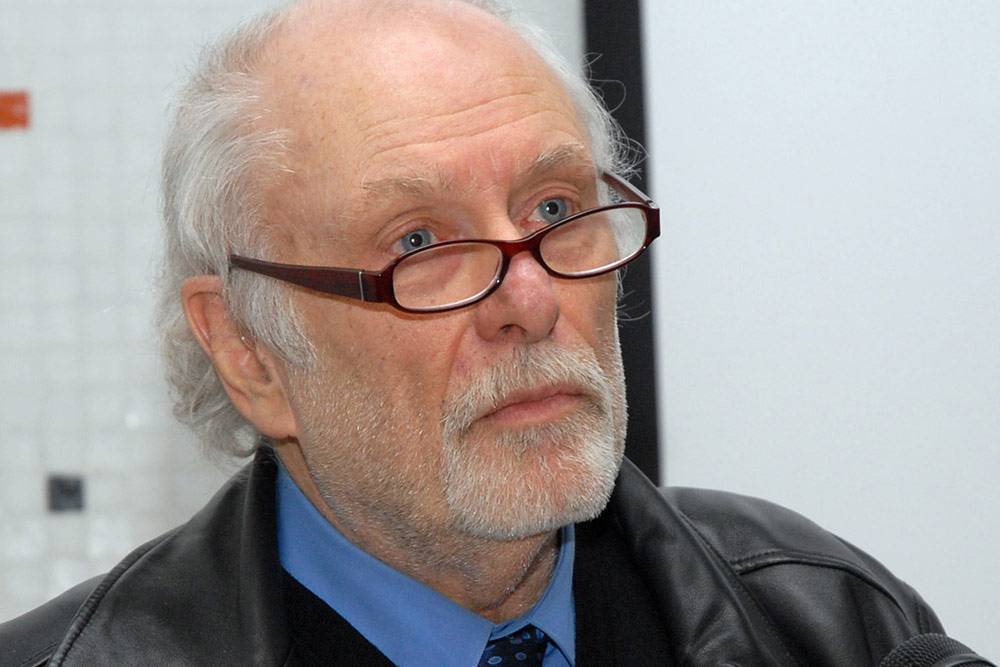Argentinian University Presents Honorary Degree to Walter Mignolo

Walter Mignolo, William H. Wannamaker Professor of Literature and director of the Center for Global Studies and the Humanities at Duke, received an honorary degree (Dr Honoris Causa) in the Humanities from the Facultad de Filosofía y Letras, National University of Buenos Aires, on Nov. 23 in Argentina.
The university cited Mignolo for his scholarship and teaching at Duke and elsewhere and as “an intellectual committed to social struggles and the expansion of human rights” and for his “theoretical contributions in the philosophical, political and literary fields, through innovative, challenging and provocative conceptualizations.”
During the ceremony, Mignolo presented a lecture, “La facultad: educación y desobediencia epistemico/estética,” on the history of the university in Europe and in the New World, and on education in and beyond the university. The lecture gave special emphasis to the concept of “la facultad,” developed by American poet and scholar Gloria Anzaldúa, which highlights knowledge that comes from learning outside of the university structure, “coming from our very act of living and intelligent beings, whether we have a diploma or not.”
His talk was one of four keynote lectures marking the 120th anniversary of the founding of the humanities faculty at the University of Buenos Aires.
Mignolo joined the Duke faculty in 1993. He previously taught at the Universities of Toulouse, Indiana, and Michigan. His most recent scholarship has focused on “decolonial aesthetics,” the concept that political, scholarly and artistic beliefs such as freedom and creativity are deeply bound with Western aesthetics, cutting off non-Western cultures from their own history and knowledge. It is an effort to reclaim those concepts for non-Western peoples as part of their own cultures, history and politics.
He is author of “The Idea of Latin America” (2006) and most recently “The Darker Side of Western Modernity: Global Futures, Decolonial Options” (2011) and co-editor with Catherine Walsh of a forthcoming book-series at Duke University Press titled “On Decoloniality.” His well known “The Darker Side of the Renaissance: Literacy, Territoriality and Colonization” (1995) was translated this year into Chinese and Spanish.
The honorary degree is the latest in a series of notable events highlighting Mignolo and his scholarship. He was a member of an international advisory panel of the University of Amsterdam Diversity Commission that this past October published a report “Let’s Do Diversity.”
In June, he joined the Dialogue of Civilizations (DOC) Program Council as a senior adviser. The council includes world-renowned scholars and intellectual leaders, in an effort to build dialogue among the major civilizations of the modern world. As part of the council, he recently published a piece on “Sustainable Development or Sustainable Economies? Ideas Towards Living in Harmony and Plenitude,” which suggests alternative strategies to sustainable development as a response to the challenges of globalization.
He also has continued to advise BeBop (Black Europe Body Politics) the successor meeting to the “Decolonial Aesthetics” conference he organized in 2011. A non-academic event involving artists, curators, journalists, scholars and activists, BeBop met this past May in Berlin. And he continues to co-direct with Rolando Vazquez and co-sponsor through the Center for Global Studies and the Humanities The Middleburg Decolonial Summer School, started in 2010.